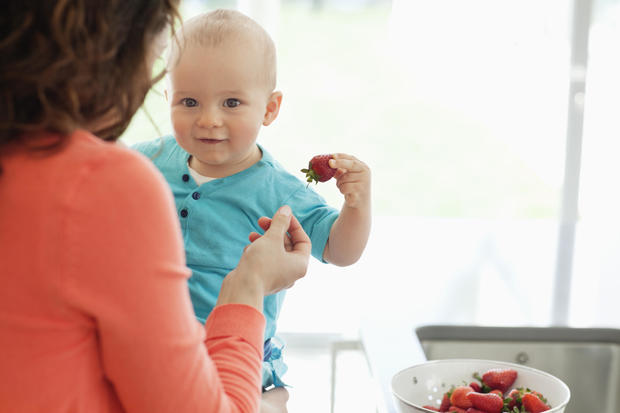It’s been well-documented that human adults can engage in altruistic behavior — giving up something valuable to help others, even at a personal cost — but a new study published in the journal Science Reports suggests that babies can be altruistic, too.
To reach this conclusion, researchers from the University of Washington, Seattle, put 19-month-old infants into two groups. One was the “Begging Experimenter Group,” in which an adult dropped fruit onto a tray and then tried to reach it. That adult, who could not reach the fruit, appeared to be begging for it. The “Non-Begging Experimenter Group” was the control group, in which the adult threw each of the fruits onto the tray and didn’t try to reach them.
These groups and procedures were similar to a classic study of chimpanzees. While human adults have developed the custom of providing food to those in need, even when it’s scarce, chimpanzees, our closest living primate relatives, don’t do this. Chimps may share many social-cognitive commonalities with humans, but giving up food is not one of them, the study said.
In the baby study, 58.33% of the infants in the “Begging Experimenter Group” handed the fruit to the begging adult. Only 4.17%, or one out of 24 infants, handed fruit to the non-begging adult.
Trending News
In that part of the study, the researchers had no way of knowing if the infants considered the fruit to be valuable. To fix that, the researchers ran the experiment again right before the infant’s next planned meal or snack — increasing their hunger, and making it more advantageous for them to eat the fruit instead of giving it away.
In that iteration, 37.50% of the infants still gave the fruit to the begging stranger. None of the infants gave the fruit to the non-begging stranger.
The researchers noted that the sample size for the study is small — but wrote that “Taken as a whole, the pattern of findings indicates that human infants systematically show altruistic food transfer behavior with readily edible, high-value food even when there is motivation to take desirous food for themselves.”


